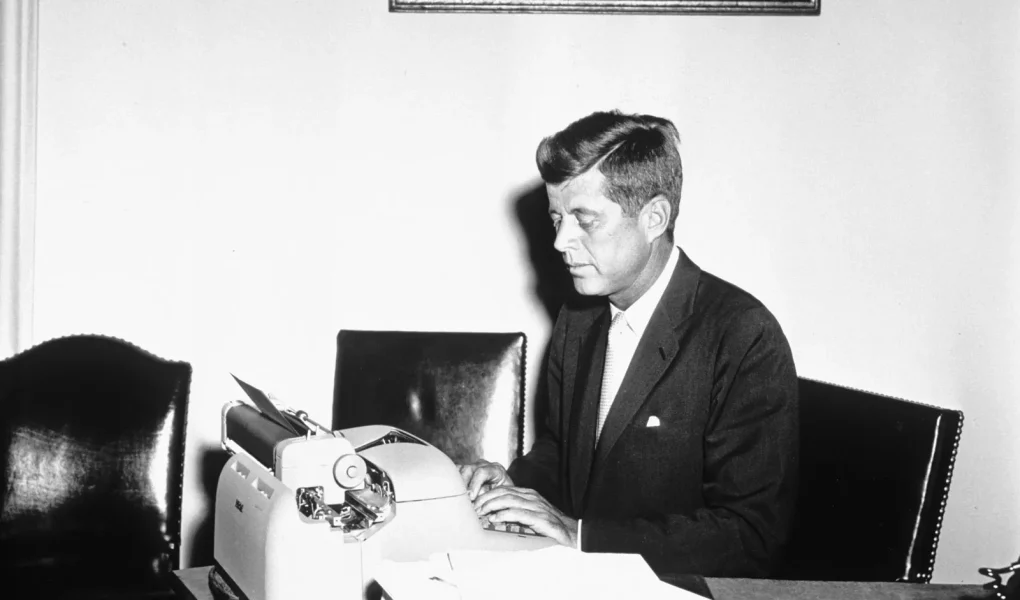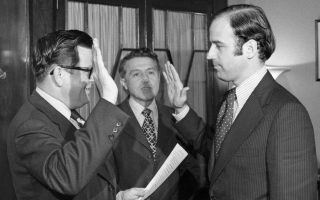kimzolciakwedding.com – Before becoming the 35th President of the United States, John F. Kennedy served as a U.S. Senator from Massachusetts, a pivotal period that shaped his political career and prepared him for the presidency. His tenure as senator from 1953 to 1960 was marked by significant legislative efforts, his growing influence on national issues, and his focus on foreign policy. This article explores Kennedy’s rise in the Senate, his key legislative priorities, his stance on civil rights and labor issues, and how his time in the Senate paved the way for his presidential run.
Early Political Career and Senate Candidacy
John F. Kennedy’s political career began after World War II when he served as a U.S. Navy officer. Upon his return from the war, Kennedy’s ambition to enter public service led him to run for Congress. He was elected to the U.S. House of Representatives in 1946, representing Massachusetts’ 11th congressional district. After serving three terms in the House, Kennedy set his sights on a more prominent role in the U.S. Senate.
In 1952, Kennedy decided to challenge the incumbent Republican Senator Henry Cabot Lodge Jr., a seasoned and influential figure in Massachusetts politics. The race was a tough one, with Kennedy needing to make a name for himself beyond his district and appeal to voters across the state. His youthful energy, charisma, and effective campaign strategy resonated with voters, and he won the election by a narrow margin. Kennedy’s victory marked the beginning of his career in the U.S. Senate, where he would further hone his political skills and build a national profile.
Legislative Priorities in the Senate
During his tenure as a U.S. Senator, Kennedy focused on several key legislative areas, including labor issues, foreign policy, and civil rights. Though not known for spearheading numerous landmark bills, Kennedy’s efforts were often centered on supporting progressive legislation and addressing the challenges of the post-war era.
Labor Rights and Economic Issues
Kennedy was a strong advocate for labor rights and sought to improve working conditions and wages for American workers. Massachusetts, with its industrial base, had a large working-class population, and Kennedy worked to represent their interests in the Senate. He supported legislation that aimed to strengthen labor unions and ensure fair wages and benefits for workers, especially in sectors such as manufacturing and shipping.
One of Kennedy’s notable contributions in the Senate was his involvement in the fight against organized crime’s influence in labor unions. He served on the Senate Labor Rackets Committee (also known as the McClellan Committee) from 1957 to 1959, investigating corruption within labor organizations, particularly the Teamsters Union. His work on this committee earned him national recognition and underscored his commitment to addressing corruption and protecting workers’ rights.
Foreign Policy and National Defense
Foreign policy was one of Kennedy’s key areas of interest during his time in the Senate, and his experiences as a World War II veteran played a significant role in shaping his worldview. In the aftermath of World War II and during the early years of the Cold War, Kennedy believed that the United States needed to maintain a strong defense posture and play a leading role in global affairs.
As a member of the Senate Foreign Relations Committee, Kennedy advocated for policies that would strengthen America’s alliances and contain the spread of communism. He was particularly concerned about the rise of Soviet influence in Eastern Europe and Asia. Kennedy supported the continuation of military and economic aid to countries resisting communist aggression, and he backed U.S. involvement in international organizations such as the United Nations and NATO.
One of Kennedy’s major contributions to foreign policy discussions in the Senate came in the form of his 1957 book, “Profiles in Courage,” which highlighted the stories of eight U.S. senators who took principled stands, often against public opinion, in matters of national importance. The book, which won the Pulitzer Prize, showcased Kennedy’s understanding of political courage and leadership in foreign and domestic affairs. It also elevated his national profile, enhancing his reputation as a thoughtful and principled leader.
Civil Rights and Social Justice
Though Kennedy’s record on civil rights during his Senate years was more cautious compared to his later presidential years, he was supportive of incremental progress toward racial equality. At a time when civil rights were becoming an increasingly important issue, especially in the South, Kennedy sought to navigate the complex political landscape.
In the Senate, Kennedy did not immediately emerge as a champion of civil rights legislation. However, he did support the Civil Rights Act of 1957, which was the first civil rights legislation passed by Congress since Reconstruction. The act aimed to increase African American voting rights and establish a Civil Rights Division within the Department of Justice. While the legislation was considered modest, it laid the groundwork for more comprehensive civil rights reforms in the future.
Kennedy’s evolving stance on civil rights became more evident as he prepared for his presidential run, but his cautious approach in the Senate reflected the delicate balance he needed to maintain between progressive Northern voters and more conservative Southern Democrats.
Key Speeches and Influence on National Issues
Throughout his Senate career, Kennedy delivered several important speeches that showcased his vision for America’s future. One of the most notable was his 1957 speech on Algeria, in which he called for U.S. support of Algerian independence from French colonial rule. At a time when many American politicians were reluctant to criticize European allies, Kennedy’s speech was groundbreaking, as it signaled his commitment to the principles of self-determination and human rights on the global stage.
Kennedy’s stance on colonialism and foreign policy during this period reflected his broader commitment to promoting democratic values worldwide. His speeches often addressed issues such as nuclear disarmament, the spread of communism, and the need for U.S. leadership in international development.
Health Struggles and Senate Absences
Kennedy’s Senate career was also marked by significant health challenges. Throughout much of his life, Kennedy suffered from chronic health issues, including severe back pain and Addison’s disease, a condition that affects the adrenal glands. These health problems often led to periods of hospitalization and absence from Senate duties. In 1954, Kennedy underwent major spinal surgery, and there were moments when his future in politics seemed uncertain.
Despite these health struggles, Kennedy’s resilience and determination to continue his political career impressed many of his colleagues and supporters. His health challenges also contributed to his image as a man of courage and endurance, traits that would later become central to his presidential campaign.
The Path to the Presidency
By the late 1950s, John F. Kennedy had established himself as a rising star in the Democratic Party. His youth, charisma, and eloquent speeches on national and international issues positioned him as a leading candidate for the presidency. While his record in the Senate was not defined by an extensive legislative portfolio, his work on foreign policy, labor issues, and civil rights, along with his national profile through “Profiles in Courage,” set the stage for his 1960 presidential campaign.
Kennedy’s decision to run for president was met with both excitement and skepticism. Some questioned whether a relatively young senator with limited legislative accomplishments could effectively lead the nation. However, Kennedy’s ability to inspire hope, his skillful use of television during his campaign, and his message of change and progress resonated with voters.
In 1960, after winning the Democratic nomination, Kennedy faced off against Republican candidate Richard Nixon in a close and hard-fought election. His performance in the televised debates, especially the first one, helped him gain the support he needed to secure a narrow victory.
Conclusion
John F. Kennedy’s time as a U.S. Senator from Massachusetts from 1953 to 1960 was a formative period in his political career. During these years, Kennedy built his reputation as a thoughtful, principled leader who was deeply committed to issues such as labor rights, foreign policy, and civil rights. His Senate career was marked by both successes and challenges, including significant health struggles, but it ultimately paved the way for his historic election as the 35th President of the United States.
As senator, Kennedy’s speeches and policy positions on key issues like labor, foreign policy, and civil rights demonstrated his growing influence and vision for America’s role in the world. His time in the Senate also gave him the experience and national recognition needed to launch a successful presidential campaign in 1960, making him one of the most iconic figures in American political history.

